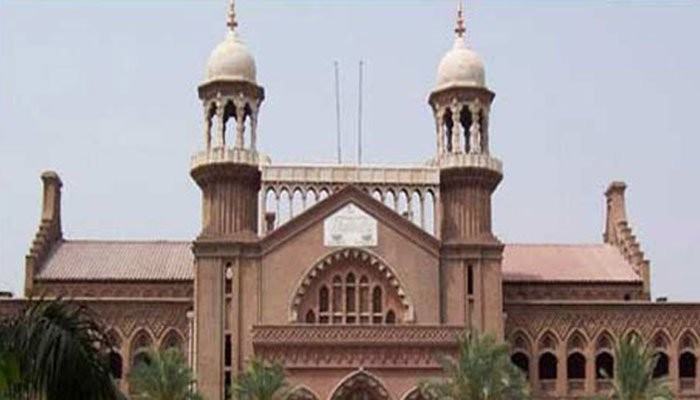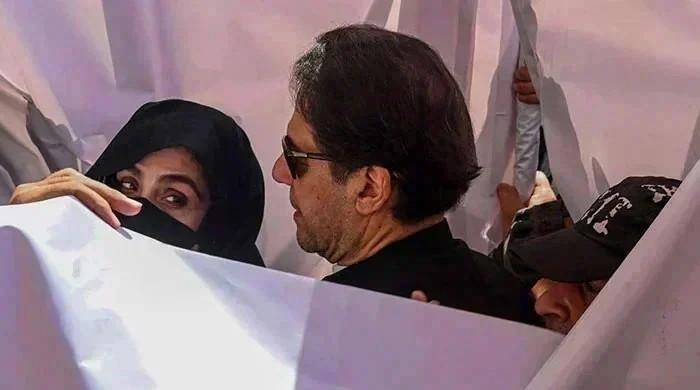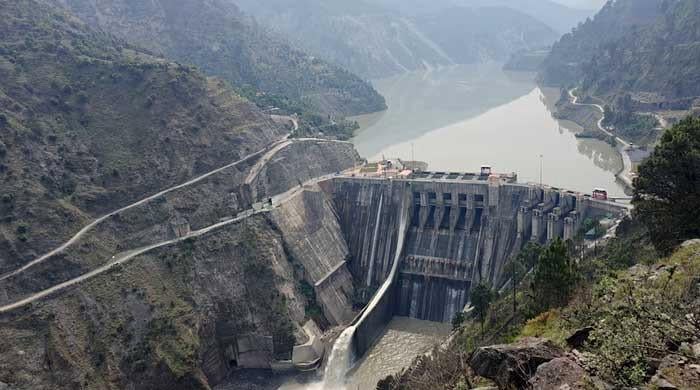Providing justice on time, in accordance with law our responsibility: CJP
Justice Nisar says the judicial system in the country needed a major overhaul
January 13, 2018
KARACHI: Chief Justice of Pakistan Justice Saqib Nisar has said that they have the responsibility to provide justice on time and in accordance with the law.
Addressing 3rd Sindh Judicial Conference here, the CJP said they are to provide justice based on law and not on choices.
He said that, unfortunately, the orders being announced at present, they are based on choices, instead of the law.
"Unfortunately, our judicial forum is being criticised, for which one of the reasons is delay [in cases]," Justice Nisar said.
He said that it was their duty to learn the law and implement it. "A Supreme Court judge may have more powers, but responsibilities are the same for everyone."
The chief justice said that people complain of not being delivered justice on time, adding, "There are several reasons for this."
He said that around 150 cases are referred to a judge everyday, while they are asked about reforms pertaining to several laws, ruling out that the judiciary is not responsible for delay in case verdicts.
"Does the institution meant to provide justice not have the right that it should be provided things to facilitate it," Justice Nisar questioned.
"A judge has only 6 working hours and he has only a few minutes for each case," he noted. "A judge alone cannot be declared responsible for delay, after burdening him so much."
The chief justice said: "The number of pending cases is high. Even if a verdict is announced in each case in two minutes, the overall number of cases can't be concluded."
He said, "I don't have to make laws, someone else has to do it. I am only to elaborate them."
Justice Nisar further said that it was parliament's job to make legislation, questioning, "Who is to bring reforms in laws?"
Addressing the media earlier in the day, he said that it was the responsibility of judges to give decisions solely on the basis of law.
The CJP referred to the judges saying they do not have the authority to give a verdict as per their will and sideline the law.
He also talked at length on issues in dispensing justice to the common man, stressing that the judicial system in the country needed a major overhaul.
Justice Nisar said that many old laws, including that of colonial era, have not been amended or updated, terming it one of the hurdles in ensuring a healthy justice system.
"We accept the supremacy of the Parliament, and it is very important in a democracy that institutions do not encroach upon each others' jurisdiction. But has the parliament updated these laws. This is a question I can't answer," he said.
He said that the judiciary is often blamed for delay in cases but there is more to the issue.
Judges, whether of the apex court of lower courts, have a lot of cases pending before them, which makes it extremely difficult to resolve them on time.
For instance, the CJP said the list of pending cases include those in which the person booked is not guilty of any crime. He added that people spend years in jail but when the case is brought to the court it turns out the person concerned is innocent.
The judiciary is unfortunately blamed for delay in proceeding on cases, the CJP said. “[But] I will accept that this is our duty and we have to do this.”
However, the CJP said in certain cases there is also a need to improve the law, which the authorities concerned should focus on.
“We cannot make a law,” the CJP said. “This is our quality that we do not cross our jurisdiction.”
The cases that linger on for a long time and hence face delays also include those pertaining to the property law. While speaking about such cases, the CJP said there are many instances in which there is a dispute between the tenant and landlord. The former claims to have bought the property, while the latter says it was rented out.
Under such circumstances, there is a need to improve the law, he added.
Therefore, he said, a major overhaul is needed to ensure provision of inexpensive and speedy justice to the people.
Speaking about judicial reforms, Justice Nisar said that judiciary in Punjab has seen the best reforms in the country, and has used technology and better organisation to reduce the frequency of pending cases.
The chief justice has summoned a meeting today (Saturday) on reforms in the country’s judicial system, which will be attended by chief justices of all four high courts.
The meeting will be held in the Supreme Court’s Karachi registry.
Another meeting of the judicial reforms committee held on Thursday in the Supreme Court’s Islamabad registry was attended by Justice Nisar, Chief Justice Lahore High Court Justice Mansoor Ali Shah and other officials.
Justice Mansoor in the meeting apprised the chief justice of steps taken for reforms in the Punjab’s judicial system. These included the use of advance technology, training of lower court judges on alternate dispute resolution, and speedy hearing of cases.
Justice Nisar on January 8 had said that judicial reforms would be launched from next week, but warned that “nobody should say then that [the judiciary] is interfering or encroaching.”
He made the remarks while hearing a suo motu case regarding cutting of trees on Margalla Hills.
“Who is responsible for making laws around the world?” the CJP enquired from state Minister for Capital Administration Dr Tariq Fazal Chaudhry while hearing a case on the failure of the Capital Development Authority (CDA) to develop rules and regulations.
“What reforms did the parliament introduce? We will bring reform in the judicial system,” the CJP remarked, adding that the reform would begin from next week.
“But this is not our job. Nobody should say then that we are interfering or encroaching,” CJP Nisar stated.
During the previous hearing of the case, CJP had remarked that “we are not fond of judicial activism in any way. But we will take action on negligence of duty at every cost. We are aware of our powers and we will not go beyond them.”











